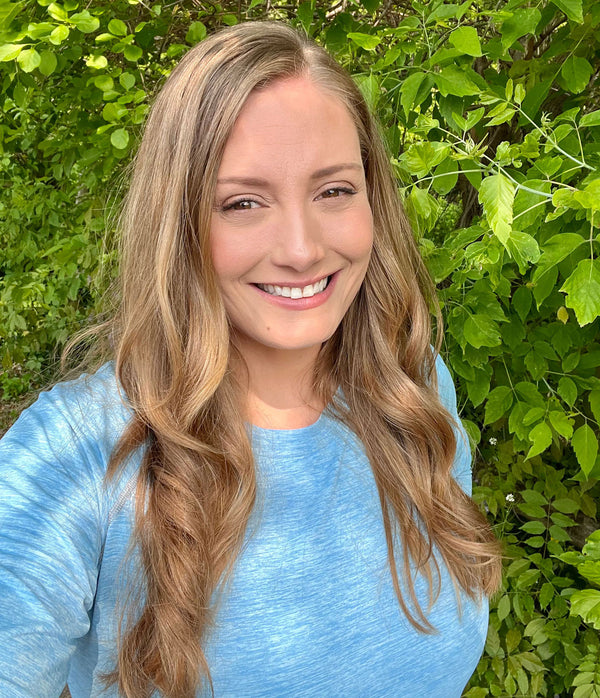Fortitude Fridays #20
Read Time: 5 mins

Quote to Ponder:
“I want to be around people that do things. I don’t want to be around people that judge or talk about what people do. I want to be around people that dream and support and do things.”
-Amy Poehler
Embrace action over words and fearlessly step into the arena.
You will find your tribe waiting for you there.

Question to Ask Yourself:
Are my expected outcomes supported by my daily habits?
I think I say it almost every week, but I really love this question.
Our daily habits shape our reality and determine our success. When our vision aligns with these habits, it creates synergy, motivation, and consistency. On the contrary, misaligned habits lead to frustration, wasted effort, and missed opportunities. Aligning vision with habits is key to achieving our goals and creating a fulfilling journey toward success.
This principle applies to a wide range of areas, such as learning a language, fitness and diet, company promotions, starting a business, raising children and so much more. However, I urge you to introspect honestly. Embrace the possibility of pivoting and recalibrating whenever necessary.
Remember, success is about both the end result and the journey. By aligning your vision with your daily habits and staying dedicated and perseverant, you'll be amazed at what you can accomplish. So, set your sights high and ensure your daily actions are on the right track.

Book to Check Out:
The Tipping Point: How Little Things Can Make a Big Difference
By Malcolm Gladwell
"The Tipping Point: How Little Things Can Make a Big Difference" is a non-fiction book that delves into the concept of social epidemics, exploring how certain trends, ideas, or behaviors can rapidly and significantly spread, leading to widespread change. With real-world examples like the rise of Hush Puppies shoes and the decline of crime in New York City, the author illustrates how small actions can create a tipping point.
As an avid reader of Gladwell's works, "The Tipping Point" lives up to his reputation. While it was published in 2000 and the world has evolved since then, I still discovered valuable insights and relevance within its pages. Gladwell's research and presentation of sociology are both fascinating and accessible, making it an engaging read. I also recommend the audiobook version, which is narrated by the author himself.
Key Take Away: Small changes can lead to significant and widespread transformations, reaching a critical point where ideas or behaviors become contagious and have a lasting impact on society.

Tactic to Try: Five Ways to Reduce Decision Fatigue
Decision fatigue is a psychological concept stemming from the diminishing quality of decisions made after prolonged periods of decision-making or facing numerous choices. It suggests that decision-making requires mental effort, depleting cognitive resources over time. This depletion is known as ego depletion, wherein self-control and willpower are finite resources that diminish with use (Baumeister 1998, Vohs 2008).
When faced with numerous choices in succession, the ability to make well-considered decisions may decline, leading to impulsive choices or defaulting to easier options. This phenomenon affects various aspects of life, from shopping and parenting to work-related decisions and personal choices. We've all experienced it—the struggle of not knowing what to make for dinner, feeling overwhelmed by too many clothing options, or being indecisive about our workout plans. Sometimes, we end up settling for cereal, feeling anxious about what to wear, or even skipping the gym altogether. The secret lies in minimizing the number of decisions, preventing our brains from talking us into easy or less ideal choices.
Thankfully, there are strategies to counter decision fatigue and conserve mental energy, streamlining your daily decision-making process. I have discovered five simple yet powerful strategies to combat decision fatigue. By implementing these techniques, you can streamline your life and make better decisions for yourself with ease.
Here's how it works:
- Prioritize Important Decisions. Identify critical choices that significantly impact your life and focus on them. List out your priorities, from complex work decisions to workout days, and allocate mental energy accordingly. Plan your week ahead of time so you know what to expect. Also aim to make critical decisions in the morning when mental reserves are high.
- Establish Routines and Habits. Create daily or weekly routines for tasks that don't require frequent changes. Automate simple decisions like morning routines, meal planning, or workout schedules. This frees up willpower for more crucial decisions.
- Limit Decision-Making Options. Reduce the number of choices whenever possible. Simplify your wardrobe, limit menu options, or create a standard grocery list. Fewer choices mean less decision fatigue. Think Steve Jobs and his famous black turtleneck.
- Take Breaks and Rest. Schedule regular breaks throughout your day to recharge your mental energy. Engage in relaxing activities like meditation, short walks, or music listening. A well-rested mind has more willpower for effective decision-making.
- Practice Mindfulness and Self-Compassion. Stay present and focused with mindfulness techniques to prevent unnecessary mental strain. Be kind to yourself and acknowledge that decision fatigue is normal. Avoid self-criticism and adopt a supportive inner dialogue.
Bonus Tip: Prioritize Healthy Lifestyle Habits - Regular exercise, a balanced diet, and sufficient sleep support overall well-being and mental resilience, reducing decision fatigue.
By implementing these strategies, you can combat decision fatigue, preserve your willpower for important choices, and make thoughtful decisions aligned with your goals. Stay patient and persistent as you cultivate these habits, and you'll witness a remarkable improvement in your decision-making abilities!
Thanks for reading and I hope you have a lovely weekend! Until next week...
You got this,


Did you like this post?
Check out my free email newsletter Fortitude Fridays that delivers quick actionable tactics to unlock your personal power.




